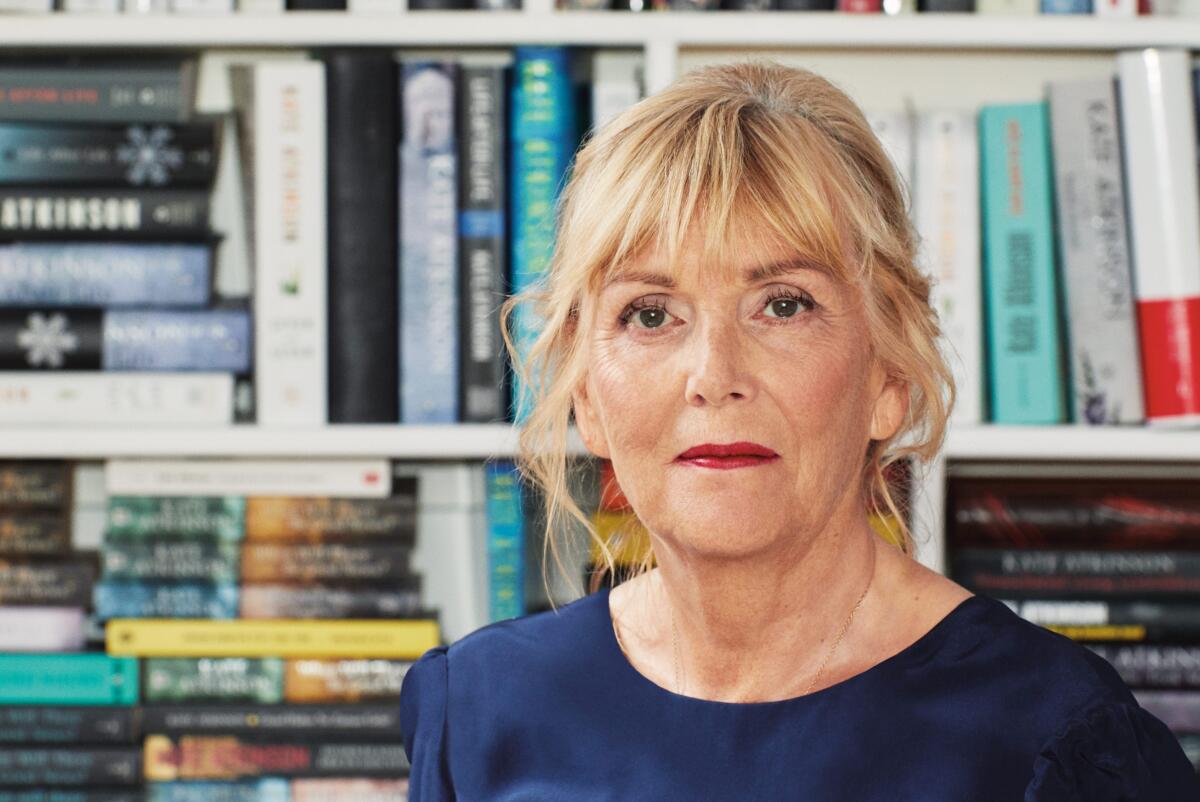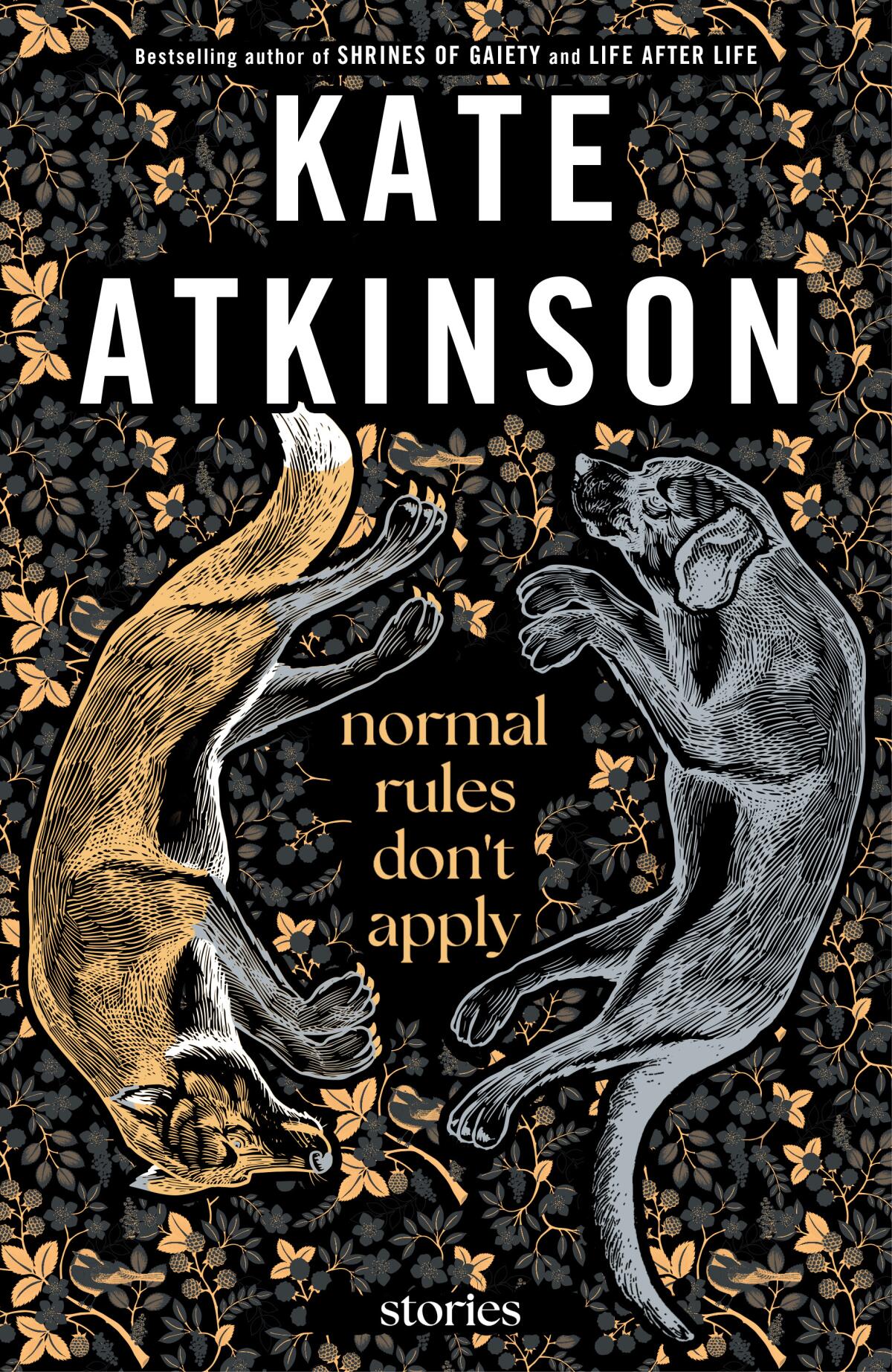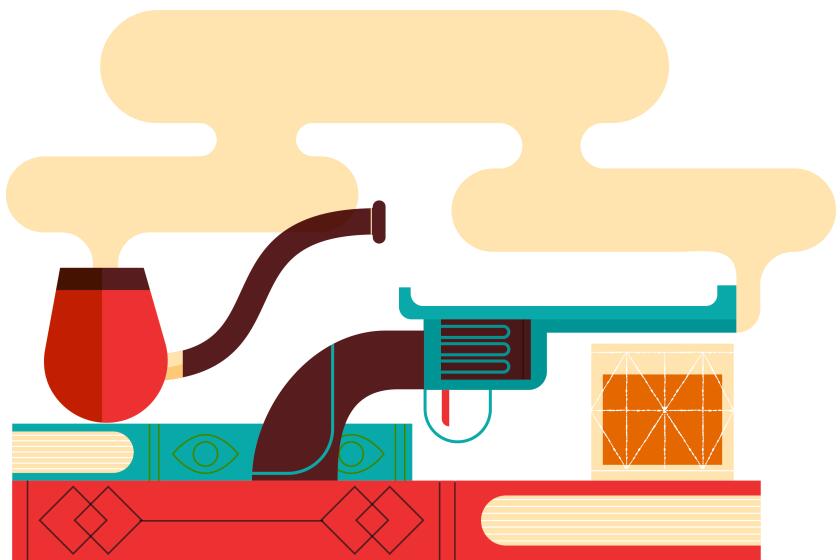Why mystery-lit icon Kate Atkinson went apocalyptic

On the Shelf
Normal Rules Don't Apply: Stories
By Kate Atkinson
Doubleday: 224 pages, $28
If you buy books linked on our site, The Times may earn a commission from Bookshop.org, whose fees support independent bookstores.
The title of British author Kate Atkinson’s new short-story collection, “Normal Rules Don’t Apply,” could easily be repurposed for an eventual memoir. Atkinson, who didn’t start writing until age 40 and won the Whitbread Book Award for her debut, 1995’s “Behind the Scenes at the Museum,” never lived by anyone’s rules for literary acclaim.
Atkinson’s Jackson Brodie mysteries, from the opening “Case Histories” to the most recent “Big Sky,” gained her a loyal following, but it was 2013’s “Life After Life” and its companion novel “A God in Ruins” that catapulted her into the contemporary lit pantheon. Who else would follow an inventive, experimental narrative about a woman whose life repeats until she has fulfilled her destiny with a sprawling, old-fashioned novel about the same woman’s family?
Kate Atkinson’s ‘Life After Life’ is a clever creation
The author rarely grants interviews, though she bent that rule to answer questions via email from her home in Edinburgh, which are edited for length below. In her second volume of short fiction (after 2003’s “Not the End of the World”), Atkinson addresses a topic as big as, well, the end of the world. Several of the pieces involve a phenomenon known as The Void, which arrives suddenly and briefly, killing (or, at least, eliminating) anyone who happens to be outside at the time.

What drew you to writing about the end of the world — besides everything going on in the world?
I think I do have a sense of the imminence of the apocalypse but that’s not a new thing for me. I suspect it’s more to do with a general sense of existential dread. And of course I’m getting older so there’s the whole problem of the winged chariot at my back. The personal apocalypse. I think fiction’s a way of dealing with that, to some extent.
This is your first collection in 20 years. Do you feel like a different kind of writer when you’re working on stories?
I love writing stories, I don’t write nearly enough of them, for my own pleasure. They are so much easier to write than novels! I started off doing a PhD on the ‘American Short Story of the ‘60s and ‘70s in Its Historical Context’ (catchy title, huh?). When I started writing for money it was for women’s magazines. Two and a half thousand words turned on a sixpence. That was probably how I learned to write. Very satisfying.
About 50 pages into “A God in Ruins,” I got confused.
Did you always know that at least some of the stories would be linked? If not, what was the key, or perhaps puzzle piece, that fell into place for you?
I always knew I wanted it to be a collection, rather than random stories. A couple of these have already been in print in a somewhat different guise, and I adapted them to fit with the whole. I think it’s a fun thing to do. I’m possibly amusing myself more than I am the reader.
Might you ever write a craft book? If so, what would it be like?
People are always asking you how to write but they never really listen to my answer! “Read everything ever written” — too harsh, I know. Most questions I get are more about how I structure my day and so on, which isn’t really what writing’s about. I certainly think I could give a very good master class, but do I want to?
So, how do you structure your day?
I’m infinitely more laissez-faire about writing these days. I have a new resolution — not always kept to and apparently, I was told the other day, also shared with Graham Greene — to write a page a day. That’s 365 pages in a year – enough for a novel. To be honest if I write one good sentence in a day that’s a success for me.
What haven’t I asked you about “Normal Rules Don’t Apply” that you’d like to talk about and/or explain?
I always say that if a book can’t speak for itself it’s not worth writing it.
The 13 most essential L.A. crime books — from Chandler, Hughes, Mosley and Ellroy to Steph Cha and Ivy Pochoda, with some ‘Helter Skelter’ in between.
You once mentioned working on an homage to Agatha Christie. Is that still coming? What else might you say about the next Kate Atkinson book?
As it happens. . . I wrote two books side by side in lockdown (crazy, I know). One was “Shrines of Gaiety” and the other is the next, possibly last, Jackson Brodie (published next August), titled “Death at the Sign of the Rook,” in which Jackson and Reggie are marooned in a snowstorm in a country house hotel where a Murder Mystery is taking place. For a very long time I have wanted to write my own Murder Mystery. I’ve had the first chapter for over 20 years, just waiting for a book to live in. So yes, finally, my homage to Agatha.
Patrick is a freelance critic, podcaster and author of the memoir “Life B.”
More to Read
Sign up for our Book Club newsletter
Get the latest news, events and more from the Los Angeles Times Book Club, and help us get L.A. reading and talking.
You may occasionally receive promotional content from the Los Angeles Times.







